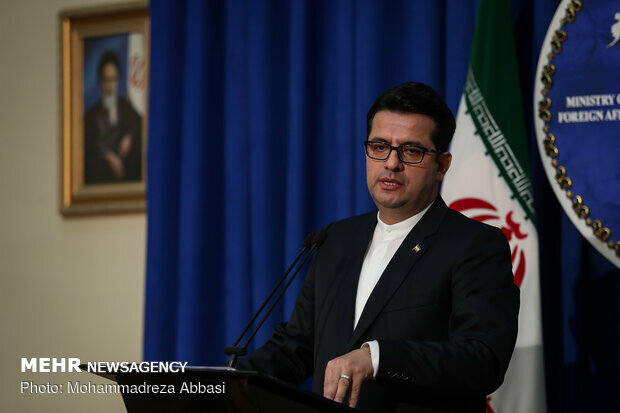Iran says doesn’t see a prospect for talks with U.S., asks Washington to change behavior

TEHRAN - Iranian Foreign Ministry spokesman Abbas Moussavi said on Tuesday that Tehran does not see any “prospect” for talks with the U.S, saying Washington must change its approach and behavior.
Mousavi said what is important for Iran is a change in behavior rather than words.
“The Islamic Republic does not pay attention to words and rhetoric. What is important is that change of language leads to change of approach and behavior. We decide based on what we see. We see confusion in the U.S. administration, but change of approach is important for us,” Mousavi told a press briefing.
U.S. President Donald Trump said on Monday that his administration is not seeking a regime change in Iran and does not want to see any terrible thing happen in the region.
During at a joint press conference with Japanese Prime Minister Shinzo Abe in Tokyo, Trump said that his main goal is to ensure that Tehran will not be developing what he called nuclear weapons.
Moussavi said that Iran does not intend to negotiate with the U.S.
“Currently, we have no talks with the United States. They should return to the international agreements. They illegally left the nuclear deal. So, we do not see a prospect for negotiation. However, we should wait and see the developments and situation,” he stated.
Elsewhere, he urged the European countries to fulfil their obligations under the 2015 nuclear deal, officially known as the Joint Comprehensive Plan of Action.
On January 31, France, Germany and Britain, the three European parties to the JCPOA, announced the creation of INSTEX, a special purpose vehicle aimed at facilitating legitimate trade between European economic operators and Iran.
On March 20, Iran’s central bank governor Abdolnaser Hemmati announced that a mechanism similar to INSTEX has been registered in Iran, officially called the Special Trade and Finance Institute (STFI).
Iran has criticized Europeans for repeated delays in taking actions in line with keeping the JCPOA.
NA/PA
